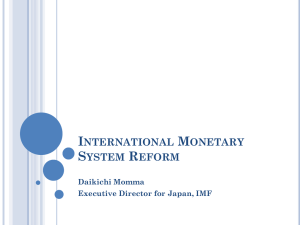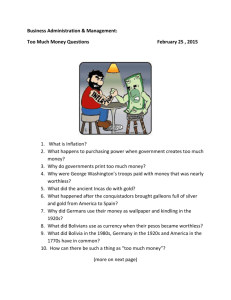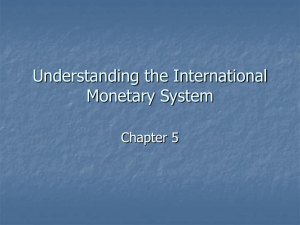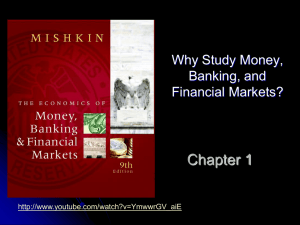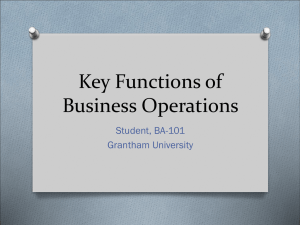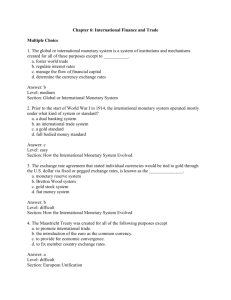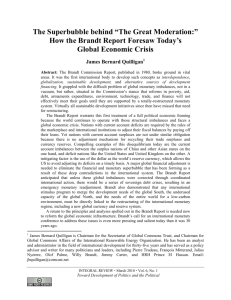CH18
advertisement
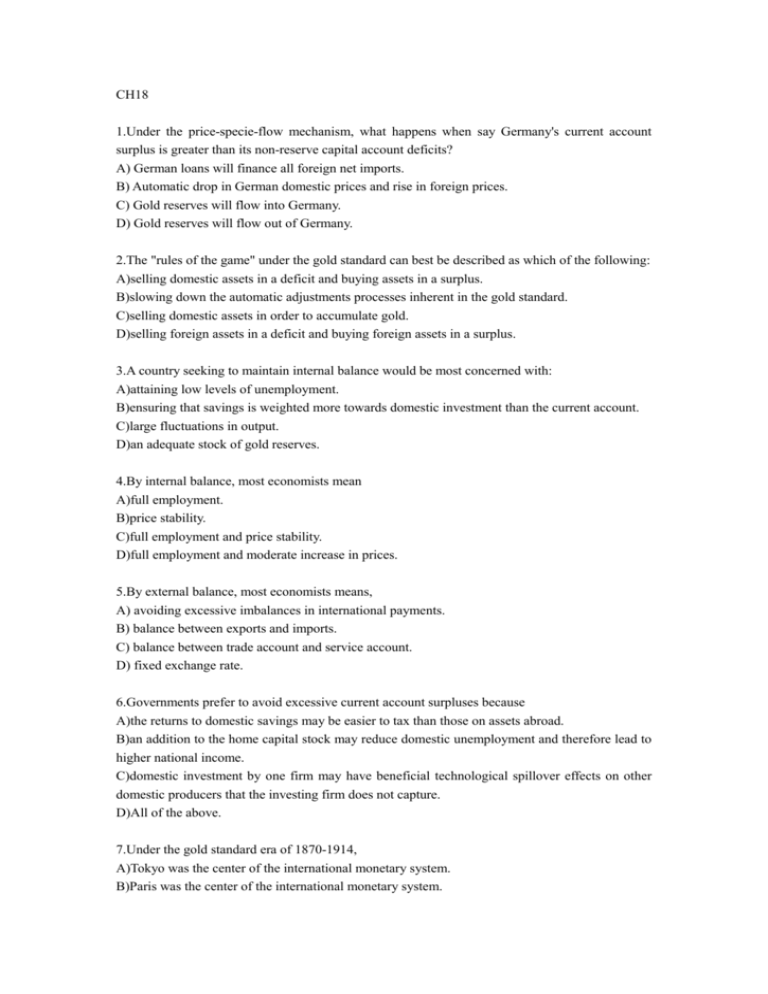
CH18 1.Under the price-specie-flow mechanism, what happens when say Germany's current account surplus is greater than its non-reserve capital account deficits? A) German loans will finance all foreign net imports. B) Automatic drop in German domestic prices and rise in foreign prices. C) Gold reserves will flow into Germany. D) Gold reserves will flow out of Germany. 2.The "rules of the game" under the gold standard can best be described as which of the following: A)selling domestic assets in a deficit and buying assets in a surplus. B)slowing down the automatic adjustments processes inherent in the gold standard. C)selling domestic assets in order to accumulate gold. D)selling foreign assets in a deficit and buying foreign assets in a surplus. 3.A country seeking to maintain internal balance would be most concerned with: A)attaining low levels of unemployment. B)ensuring that savings is weighted more towards domestic investment than the current account. C)large fluctuations in output. D)an adequate stock of gold reserves. 4.By internal balance, most economists mean A)full employment. B)price stability. C)full employment and price stability. D)full employment and moderate increase in prices. 5.By external balance, most economists means, A) avoiding excessive imbalances in international payments. B) balance between exports and imports. C) balance between trade account and service account. D) fixed exchange rate. 6.Governments prefer to avoid excessive current account surpluses because A)the returns to domestic savings may be easier to tax than those on assets abroad. B)an addition to the home capital stock may reduce domestic unemployment and therefore lead to higher national income. C)domestic investment by one firm may have beneficial technological spillover effects on other domestic producers that the investing firm does not capture. D)All of the above. 7.Under the gold standard era of 1870-1914, A)Tokyo was the center of the international monetary system. B)Paris was the center of the international monetary system. C)Berlin the center of the international monetary system. D)London was the center of the international monetary system. 8.Under the gold standard era of 1870-1914, A)central banks tried to have sharp fluctuations in the balance of payments. B)central banks tried to avoid sharp fluctuations in the current account of the balance of payments. C)central banks tried to avoid sharp fluctuations in the trade account of the balance of payments. D)central banks tried to avoid sharp fluctuations in the balance of payments. 9.The price-specie-flow mechanism A)is an automatic mechanism for assuring external balance under floating exchange rates. B)is an automatic mechanism for assuring external balance under the gold standard. C)is an automatic mechanism for assuring internal balance under floating exchange rates. D)is an automatic mechanism for assuring internal balance under the gold standard. 10.A policy of "beggar-thy-neighbor" is a policy that A) often benefits the home country in the long run. B) often benefits the foreign country in the long run. C) often benefits foreign country in the short run. D) does not often benefits any country in the long run. 11.The Great Depression that started in 1929 was A) confined only to the United States. B) confined only to the United States and Britain. C) confined only to the United States and Europe. D) a global phenomenon. 12.A convertible currency is a currency that may be freely exchanged for A) domestic assets. B) only silver. C) only copper. D) foreign currencies. 13.Which of the two features of the IMF Articles of Agreement helped promote flexibility in external adjustment? A) IMF members contributed their currency to form a pool of resources that IMF could lend to countries in need. B) Parities in the exchange rate against the dollar could be adjusted with agreement of IMF. C) New countries could enter the agreement if they fixed their exchange rate. D) A and B. 14.The XX schedule shows how much A) fiscal expansion is needed to hold the current account surplus at X as the currency is devalued by a given amount. B) monetary expansion is needed to hold the current account surplus at X as the currency is devalued by a given amount. C) fiscal expansion is needed to hold the current account surplus at X as the currency is evaluated by a given amount. D) fiscal and monetary expansions are needed to hold the current account surplus at X as the currency is devalued by a given amount. 15.An expenditure-changing policy A) alters the direction of the economy's total demand for goods and services. B) alters the level of the economy's total demand for goods and services. C) has no effect on aggregate demand. D) is the same thing as an expenditure-switching policy. CACCA DDDBD DDDAB
